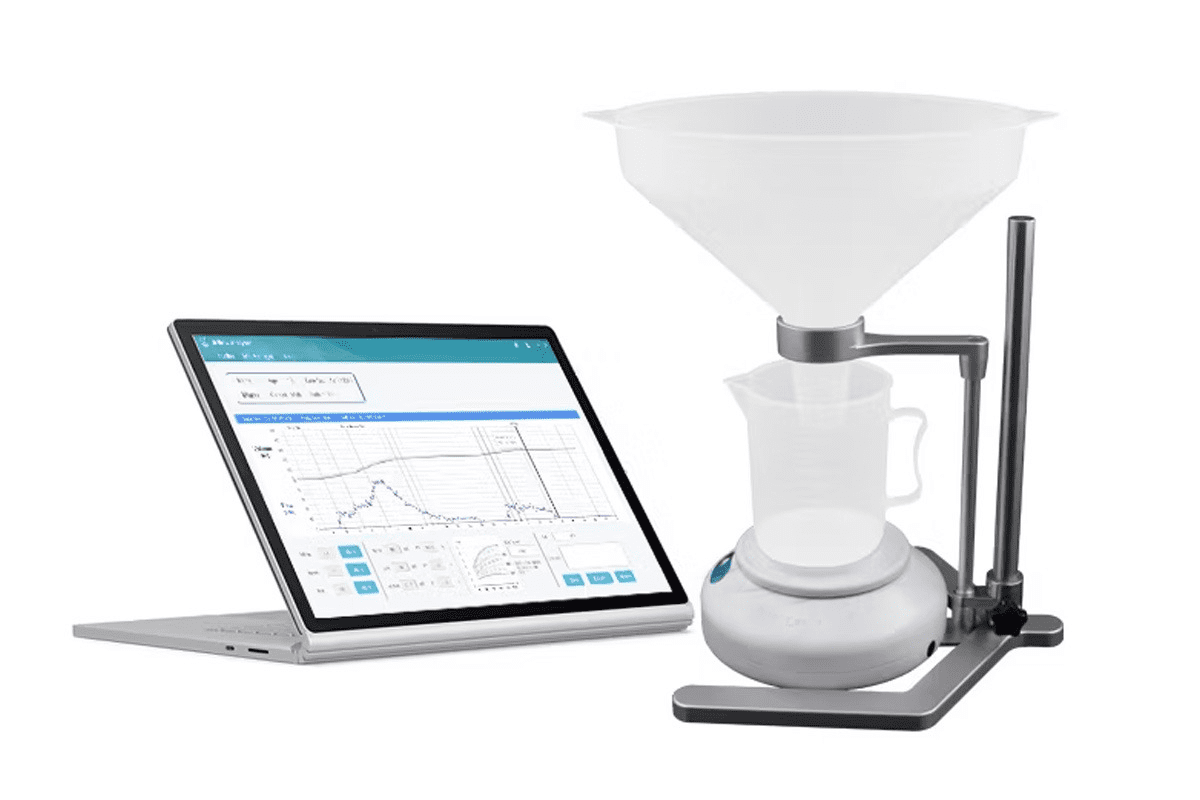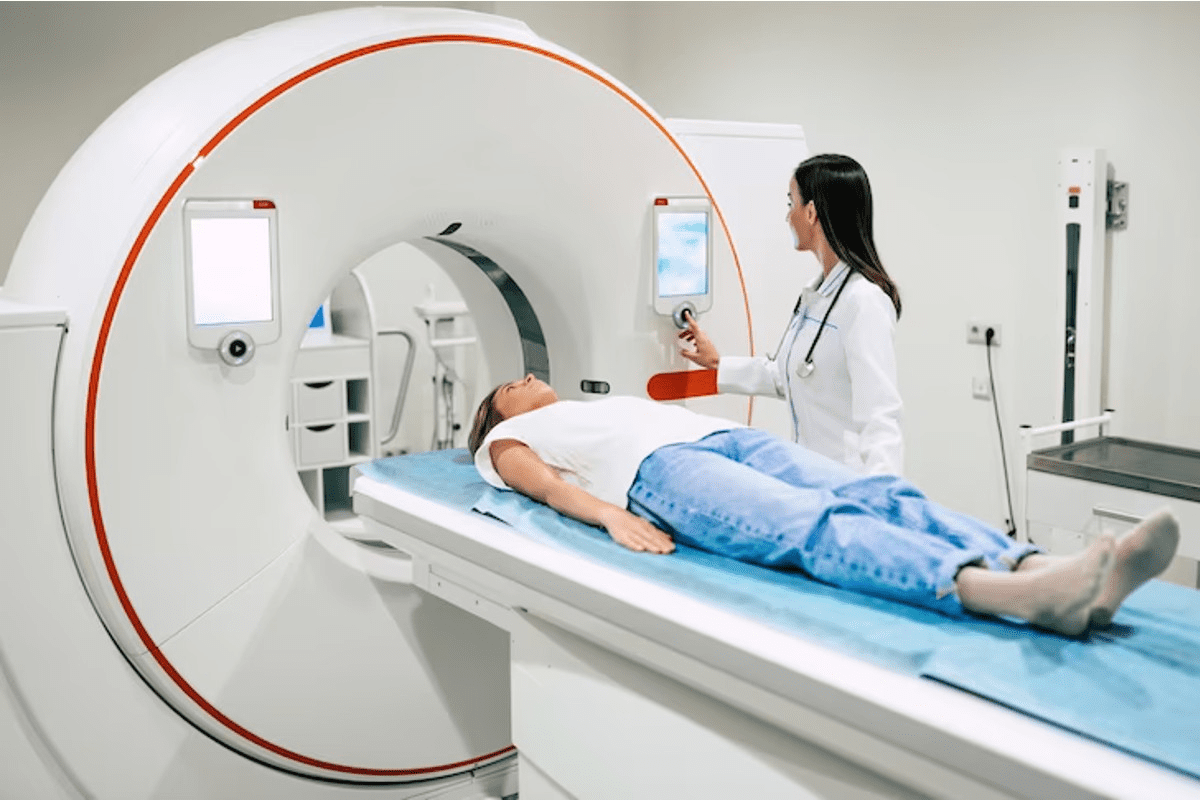Last Updated on November 26, 2025 by Bilal Hasdemir
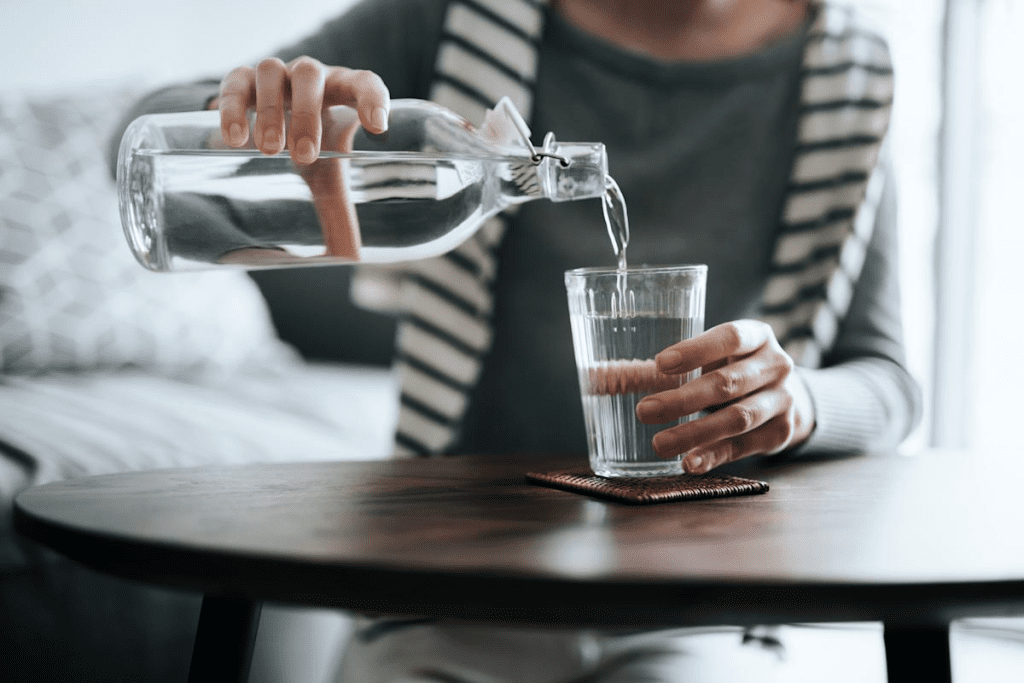
Chemotherapy Side Effects
Chemotherapy side effects can vary from person to person, and one surprising effect is sensitivity to cold. Many people on chemotherapy find it hard to drink cold water or eat chilled foods. We’ll look into why this happens and how to stay hydrated.
Chemotherapy can affect your taste and make you more sensitive to cold temperatures. Because of this, drinking cold water might not feel good or even cause discomfort. We’ll discuss simple ways to manage these changes and stay properly hydrated during your treatment.
Key Takeaways
- Chemotherapy can cause taste disorders and cold sensitivity.
- Drinking cold water may become uncomfortable during treatment.
- Staying hydrated is crucial during chemotherapy.
- Managing taste changes can help make drinking more comfortable.
- There are ways to make hydration more manageable during chemo.
The Cold Sensitivity Phenomenon During Chemotherapy
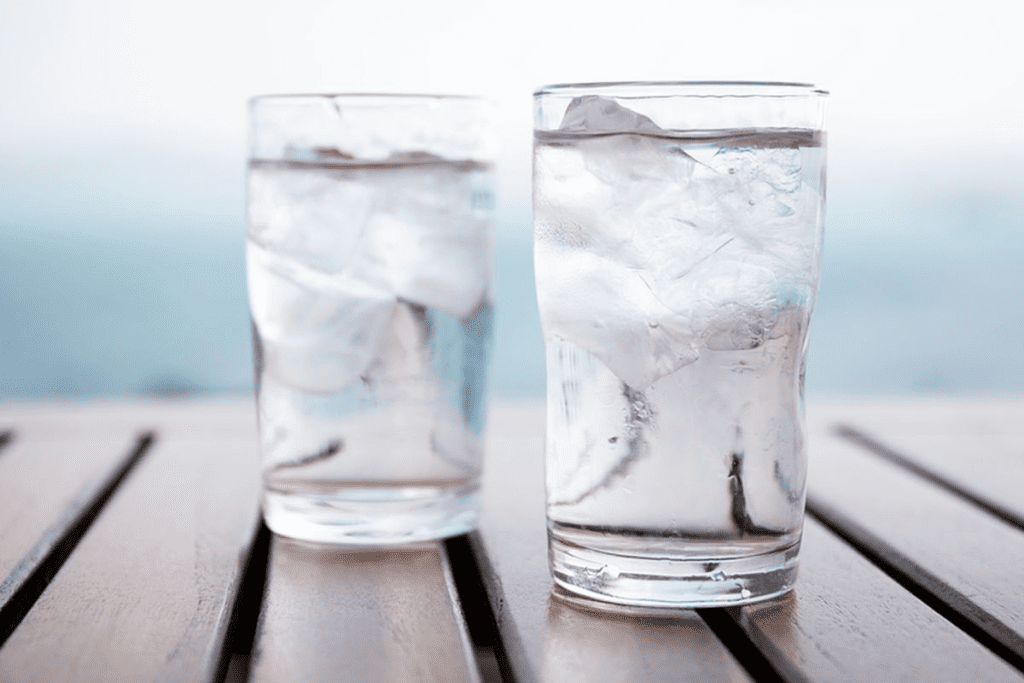
Chemotherapy can change how our bodies react to cold, causing cold dysesthesia. This is not just a small issue; it’s a big side effect that can really affect a patient’s life. Cold sensitivity in chemo patients is a big worry, as it changes how patients deal with their treatment.
What happens in your body when cold meets chemo
Chemotherapy drugs can harm nerves, leading to cold dysesthesia. This is when cold temperatures or drinks cause discomfort or pain. Studies show that these drugs can make nerves more sensitive to cold, leading to pain even at normal temperatures.
Chemotherapy affects nerves in complex ways. It can change how nerves work, causing odd sensations. Some patients might feel pain or tingling in their hands and feet, known as peripheral neuropathy. Cold temperatures can make this worse, increasing sensitivity.
The science behind temperature sensitivity
The science behind temperature sensitivity during chemotherapy involves how drugs affect the nervous system. Some chemotherapy agents can harm the small nerve fibers that detect temperature changes. This makes patients more sensitive to cold. Knowing this is key to finding ways to handle cold sensitivity.
Research has found that some chemotherapy drugs are more likely to cause cold sensitivity. For example, certain platinum-based drugs and taxanes are linked to neuropathy and cold dysesthesia. By knowing which drugs are more likely to cause these issues, doctors can help patients understand what to expect and how to manage their symptoms.
Understanding Chemotherapy Side Effects
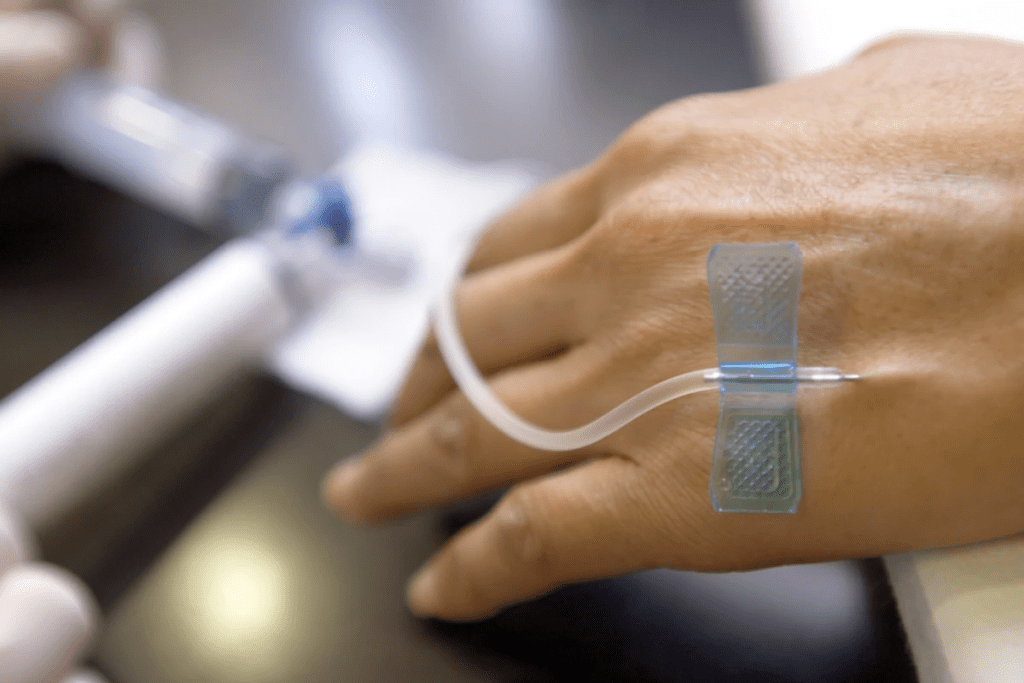
Chemotherapy affects the body in many ways, causing physical reactions. It can lead to side effects like taste disorders, neuropathy, and cold sensitivity.
Common Physical Reactions to Chemotherapy
Chemotherapy can cause different physical reactions. Some common side effects include:
- Taste disorders
- Neuropathy
- Cold sensitivity
- Fatigue
- Nausea and vomiting
These reactions can greatly affect a patient’s daily life. It’s crucial to manage them well.
How Chemotherapy Affects Nerve Endings
Chemotherapy can harm nerve endings, leading to conditions like peripheral neuropathy. This can cause pain, numbness, and tingling in the hands and feet.
| Chemotherapy Side Effect | Description |
| Peripheral Neuropathy | Damage to nerve endings causing pain, numbness, and tingling |
| Taste Disorders | Changes in taste or loss of taste |
| Cold Sensitivity | Increased sensitivity to cold temperatures |
Cold-Induced Neuropathy: The Medical Explanation
Patients getting chemotherapy might feel cold sensitivity. This is because some drugs harm nerve fibers. It makes them feel sensitive and uncomfortable.
Peripheral Neuropathy from Specific Chemo Drugs
Some chemotherapy drugs damage peripheral nerves. Oxaliplatin is one that makes nerves very sensitive to cold. It changes how nerves react to cold temperatures.
The table below shows which chemotherapy drugs can cause nerve damage and cold sensitivity:
| Chemotherapy Drug | Association with Peripheral Neuropathy | Cold Sensitivity |
| Oxaliplatin | High | Acute |
| Paclitaxel | Moderate | Variable |
| Docetaxel | Moderate | Less Common |
Duration and Severity of Cold Sensitivity
How long and how bad cold sensitivity feels can differ. It depends on the drug, how much is used, and how sensitive a person is. Usually, it goes away after chemo ends. But sometimes, it stays.
Managing cold sensitivity means staying warm. Wear warm clothes and use medication if needed.
Oxaliplatin and Cold Sensitivity: A Special Case
Oxaliplatin, a chemotherapy drug, causes severe cold sensitivity in patients. This makes everyday life tough for those going through treatment. It affects their comfort and daily activities.
Why Oxaliplatin Causes Acute Cold Sensitivity
Oxaliplatin damages cancer cells’ DNA, stopping them from growing. But, it also harms nerve cells, leading to neuropathy. This condition makes even slight colds painful.
The exact reason for this cold sensitivity is complex. It involves damage to nerve fibers. This damage messes up nerve function, making colds more uncomfortable.
Managing Oxaliplatin-Specific Reactions
It’s key to manage cold sensitivity for oxaliplatin patients. Here are some tips:
- Dress warmly: Wear layers to stay warm, even in mild weather.
- Avoid cold environments: Stay out of air-conditioned places or cold drafts.
- Use warm beverages: Drinking warm drinks helps keep your body warm.
- Protect extremities: Wear gloves and warm socks to keep hands and feet warm.
Using these tips can help patients feel better. It makes managing oxaliplatin’s side effects easier.
How Cold Water Affects Your Digestive System During Treatment
When you’re on chemotherapy, your stomach can get really sensitive. Drinking cold water might make things worse. The drugs can irritate your digestive tract, causing mild to severe problems.
Throat and Esophageal Discomfort
Drinking cold water can make your throat muscles tighten. This can hurt, especially if your throat is already sore from chemo. The esophagus might also get tight, making you feel uncomfortable.
Some common issues include:
- Difficulty swallowing
- Pain or discomfort when swallowing
- Sensation of food getting stuck in the throat
Stomach Sensitivity Issues
Cold water can also upset your stomach. It might cause cramps, bloating, or discomfort. Chemo can make your stomach lining more sensitive, and cold water can make it worse.
Patients may experience:
- Nausea or vomiting
- Abdominal pain or cramps
- Bloating or gas
Intestinal Reactions to Cold
Cold water can also affect your intestines. It might cause cramps or change your bowel habits.
Some potential intestinal reactions include:
- Diarrhea or constipation
- Abdominal cramps
- Bloating or gas
If you’re on chemotherapy, it’s important to know about these issues. Talk to your doctor about any discomfort. Managing your digestive problems can make your treatment better.
Oral Mucositis and Temperature Sensitivity
Oral mucositis during chemotherapy can really hurt a patient’s quality of life. Chemotherapy is key in fighting cancer but has many side effects. One of these is oral mucositis, which makes the mouth lining sore and painful.
How chemotherapy affects the mouth lining
Chemotherapy targets fast-growing cells, including those in the mouth. This leads to damage in the mouth lining, causing pain and swelling. Simple tasks like eating and drinking become hard.
Oral mucositis not only hurts physically but also affects nutrition. The pain makes it hard to eat, which is essential for getting nutrients.
Why temperature extremes worsen mucositis
Patients with oral mucositis are very sensitive to temperature. Foods or drinks that are too hot or cold make it worse. The damaged mucosa’s nerve endings are more sensitive to temperature changes.
Drinking cold water can cause sharp pains, while hot drinks can burn. Staying away from extreme temperatures in food and drinks can help.
Managing oral mucositis requires a few steps. Keeping the mouth clean, using topical anesthetics, and avoiding irritants are key. Drinking beverages at room temperature can also help with temperature sensitivity.
We suggest patients talk to their healthcare providers to create a plan for managing oral mucositis and temperature sensitivity.
The Importance of Hydration During Chemotherapy
Drinking enough water is key to recovering from chemotherapy. The body loses fluids due to vomiting, diarrhea, and more urine. Staying hydrated helps the body process treatment better and lowers dehydration risk.
Why Staying Hydrated Matters More During Treatment
Hydration is crucial during chemotherapy for several reasons. It helps remove chemotherapy drugs and byproducts, reducing side effects. It also keeps kidneys and other organs healthy. Plus, it helps with fatigue and dizziness.
We suggest drinking lots of fluids all day. Water, clear broths, and electrolyte-rich drinks like coconut water are good. Avoid caffeinated and sugary drinks that can upset your stomach.
Recommended Daily Fluid Intake for Chemo Patients
The recommended fluid intake varies, but aim for 8-10 cups (64-80 ounces) a day. Needs can change based on treatment type, health, and activity level.
| Fluid Type | Recommended Amount | Benefits |
| Water | At least 8 cups (64 oz) | Hydrates the body, helps flush out toxins |
| Clear Broths | 1-2 cups (8-16 oz) | Provides essential salts, easy on the stomach |
| Electrolyte-rich Beverages | 1-2 cups (8-16 oz) | Replenishes lost electrolytes, supports hydration |
Monitoring Hydration: Check your urine color to see if you’re hydrated. It should be pale yellow or clear. Dark yellow or amber means you need more water.
By focusing on hydration, chemotherapy patients can manage their treatment better. This can help lessen side effects. Always talk to your healthcare provider for specific hydration advice.
Safe Beverage Alternatives During Chemotherapy
When you’re going through chemotherapy, it’s key to find drinks that are easy to swallow and full of nutrients. Cold drinks can be a problem, so looking for other options is important.
Room Temperature Water Options
Drinking water at room temperature is a simple choice. It helps avoid the discomfort of cold drinks. Try plain water or infused water with lemon, lime, or cucumber for flavor without the cold.
Warm Drinks That Support Treatment
Warm drinks can be very comforting during chemotherapy. Herbal teas like peppermint or chamomile can ease nausea and help you relax. Warm broth is also comforting and adds important salts.
Nutritional Beverages for Chemo Patients
Nutritional drinks are crucial for keeping your strength up during treatment. Look into nutritional supplements or shakes with lots of proteins and calories. They’re great for patients who can’t eat solid foods because of treatment side effects.
Some patients might also need drinks with lots of electrolytes, like coconut water or sports drinks. These can help with dehydration caused by treatment side effects.
Temperature Guidelines for Food and Drinks During Chemo
The temperature of food and drinks during chemotherapy can help or hurt. Keeping the right temperatures is key to feeling better and sticking to your treatment plan.
Ideal Temperature Ranges for Beverages
Drinking at a comfortable temperature can ease mouth, throat, and stomach irritation. Room temperature or slightly warm beverages are best. They’re soothing without shocking your system.
For those with oral mucositis, it’s crucial to avoid very hot or cold drinks. Warm liquids like herbal teas or warm broth are comforting and keep you hydrated. Stay away from caffeinated and carbonated drinks, as they can irritate the mucosa more.
Food Temperature Considerations
The temperature of food can greatly affect your comfort during chemo. Consuming foods at room temperature or slightly warmed is easier on your stomach and reduces discomfort.
Some find cool or cold foods help with mouth or throat pain. But, it’s important to be careful not to be too sensitive. It’s best to avoid very hot foods, as they can make irritation worse.
- Opt for lukewarm or room-temperature soups.
- Choose cold or room-temperature desserts to avoid irritating the mouth and throat.
- Avoid consuming very hot or very cold foods and beverages.
Being mindful of your food and drink temperatures can make chemo easier. It helps reduce side effects and makes treatment more bearable.
When Cold Sensitivity Begins and How Long It Lasts
Cold sensitivity during chemotherapy starts at different times for everyone. It often begins in the first few treatment cycles. Knowing when and how long it lasts helps patients manage their treatment better.
Timeline of Cold Sensitivity During Treatment Cycles
Cold sensitivity usually starts soon after chemotherapy begins. The exact time can vary based on the treatment and the patient.
For many, cold sensitivity becomes clear:
- Within the first few days after chemotherapy
- During the first treatment cycle
- More noticeable with each cycle
The length of time cold sensitivity lasts also varies. Some feel it only during treatment, while others may feel it for a longer time.
Recovery Patterns After Completing Chemotherapy
Recovering from cold sensitivity after chemotherapy takes time. The recovery time can differ a lot between people.
Generally, patients can expect:
| Recovery Phase | Typical Timeline | Characteristics |
| Immediate Post-Treatment | 0-3 months | Gradual decrease in cold sensitivity |
| Short-Term Recovery | 3-6 months | Noticeable improvement in sensitivity |
| Long-Term Recovery | 6-12 months or more | Significant decrease or complete end of cold sensitivity |
It’s key for patients to talk to their healthcare provider. This helps understand what to expect during and after treatment.
Managing Cold Sensitivity While Staying Hydrated
Staying hydrated is key during chemotherapy. Knowing how to handle cold sensitivity can really help. Many patients find cold water hard to drink because of this.
Practical Tips for Drinking Comfortably
There are a few ways to deal with cold sensitivity. Drinking water at room temperature can help a lot. Room temperature water is less likely to cause discomfort.
Another good idea is to gradually adjust the temperature of your drinks. If you’re used to cold water, try warming it up a bit. Using insulated cups or straws can also keep your drinks at a steady temperature.
Products that Help with Temperature Sensitivity
There are many products out there to help with temperature sensitivity. Temperature-controlled cups keep your drinks at a comfy temperature. Some people find specialized straws helpful too, as they reduce cold liquid contact with your mouth.
Also, there are beverages made just for chemotherapy patients. They’re gentle on your mouth and throat. They help you stay hydrated and get the nutrients you need.
By using these tips and products, patients can handle cold sensitivity better. This way, they can stay hydrated during their treatment.
What Oncologists Recommend About Cold Beverages
Oncologists give advice on drinking fluids to help patients with chemotherapy. It’s key to stay hydrated during treatment. Knowing the best drink temperature can make a big difference in comfort.
Medical Guidelines for Fluid Consumption
Doctors tell patients to watch the drink temperature during chemotherapy. Avoiding extremely cold drinks is often advised. This is because cold sensitivity can be a big problem for some.
We recommend drinking at room temperature or slightly warm. This can help avoid discomfort.
Studies show that some chemotherapy drugs, like oxaliplatin, can make you sensitive to cold. Even a cold drink or a cold place can cause symptoms. So, oncologists often recommend avoiding cold drinks and foods to prevent these symptoms.
When to Contact Your Doctor About Sensitivity Issues
It’s important for patients to know when to talk to their doctors about sensitivity. If you have severe cold sensitivity or if your symptoms get worse, contact your doctor. They can help manage these side effects and adjust your treatment if needed.
Also, be aware of other symptoms like numbness or tingling in your hands and feet. Telling your oncologist about these symptoms can help them give you better advice.
By following the medical guidelines for drinking and talking to your healthcare team, you can handle chemotherapy better. This can make your treatment experience better overall.
Patient Experiences: Real Stories About Cold Sensitivity
Cancer survivors have shared their personal stories of dealing with cold sensitivity during chemotherapy. These stories offer valuable insights into this challenging side effect. They highlight the difficulties faced by patients and provide practical advice on managing cold sensitivity.
Common Coping Strategies from Cancer Survivors
Many cancer survivors have found effective ways to cope with cold sensitivity. Some wear gloves when handling cold objects or drink cold beverages to lessen discomfort. Others adjust their daily routines to avoid cold temperatures.
Practical Tips from Survivors:
- Using warm or room-temperature beverages to avoid triggering cold sensitivity
- Avoiding cold foods and opting for warm or lukewarm meals instead
- Wearing layers to maintain body heat, especially in cold environments
Unexpected Challenges and Solutions
Cancer survivors have faced unexpected challenges with cold sensitivity. Some have experienced cold-induced neuropathy, which can be very debilitating. But through shared experiences, patients have found innovative solutions, like using specialized products to manage temperature sensitivity.
The resilience and resourcefulness of cancer survivors are truly inspiring. By learning from their experiences, we can better understand how to cope with cold sensitivity. This can improve the quality of life for those undergoing chemotherapy.
Key Takeaways:
- Being aware of and prepared for cold sensitivity can significantly reduce its impact.
- Simple adjustments to daily routines can make a substantial difference in managing cold sensitivity.
- Support from others who have experienced similar challenges can be invaluable.
Research on Reducing Cold Sensitivity During Treatment
Ongoing research aims to lessen the side effects of chemotherapy, like cold sensitivity and neuropathy. We’re looking into new ways to help patients during treatment. Several promising areas of study have come up.
Emerging Treatments for Chemotherapy-Induced Neuropathy
Chemotherapy-induced neuropathy is a big worry for many, causing discomfort and sensitivity, especially to cold. Recent studies have identified several emerging treatments that show promise in reducing these symptoms. For example, research into certain medications and alternative therapies has shown potential benefits in managing neuropathy.
One area of research is on developing new drugs to prevent or lessen nerve damage during chemotherapy. Clinical trials are ongoing to check if these medications work and are safe.
Promising Studies on Managing Temperature Sensitivity
There are also studies focused on managing temperature sensitivity. Researchers are looking into different strategies, like behavioral changes and protective measures, to help patients deal with cold sensitivity.
A notable study found that patients who got advice on managing temperature extremes during chemotherapy had fewer cold sensitivity episodes.
“By understanding and addressing the specific challenges of temperature sensitivity, we can significantly improve the quality of life for our patients undergoing chemotherapy,”
said a leading researcher in the field.
As research keeps moving forward, we’re hopeful for new and innovative solutions to support patients through this tough time.
Conclusion
Chemotherapy is a key treatment for many cancers, but it has side effects like cold sensitivity. Understanding these side effects and finding ways to manage them can greatly improve a patient’s life during treatment.
We’ve looked at cold sensitivity and other side effects of chemotherapy. We’ve given tips on how to lessen these issues. Managing side effects well means staying informed and working with healthcare providers to find the best solutions.
Drinking plenty of water and being careful with the temperature of food and drinks can help. As new research comes out on reducing cold sensitivity, it’s important for patients to stay updated. They should also talk to their healthcare team about these options.
FAQ
Why is cold water not recommended during chemotherapy?
Cold water is not good during chemotherapy. It can make patients feel cold or even hurt. This is because some chemotherapy drugs make people more sensitive to colds.
What is cold dysesthesia, and how is it related to chemotherapy?
Cold dysesthesia is when people feel too sensitive to cold. It happens when chemotherapy drugs affect nerve endings. This can cause discomfort or pain when it’s cold.
How does chemotherapy affect nerve endings, and what are the consequences?
Chemotherapy can harm nerve endings. This can lead to numbness, tingling, or pain. It also makes people more sensitive to cold.
What is cold-induced neuropathy, and which chemotherapy drugs are more likely to cause it?
Cold-induced neuropathy is a nerve problem caused by chemotherapy. Drugs like oxaliplatin are more likely to cause it. This makes people more sensitive to cold.
Why does oxaliplatin cause acute cold sensitivity, and how can it be managed?
Oxaliplatin harms nerve fibers, causing cold sensitivity. To manage this, avoid cold, wear warm clothes, and might need to change treatment plans.
How does cold water affect the digestive system during chemotherapy?
Cold water can make the throat, esophagus, stomach, and intestines uncomfortable during chemotherapy. It can make side effects like mouth sores and digestive problems worse.
What is oral mucositis, and how does temperature sensitivity affect it?
Oral mucositis is a common side effect of chemotherapy. It causes mouth pain. Cold or hot temperatures can make it worse, so managing temperature is key.
Why is staying hydrated important during chemotherapy?
Drinking enough water is important during chemotherapy. It helps the body handle the treatment and prevents dehydration. Dehydration can make side effects worse.
What are some safe beverage alternatives during chemotherapy?
Safe drinks during chemotherapy include room temperature water and warm beverages. Nutritional drinks can also help patients and manage side effects.
What are the ideal temperature ranges for beverages during chemotherapy?
The best temperature for drinks during chemotherapy is between room temperature and warm. Avoiding very cold or hot drinks is best.
When does cold sensitivity typically begin during chemotherapy, and how long does it last?
Cold sensitivity can start soon after starting chemotherapy. It can last for different times for each person, depending on their treatment and how they react.
How can patients manage cold sensitivity while staying hydrated?
To manage cold sensitivity, drink comfortably and use products that help. Drinking warm beverages can also help.
What do oncologists recommend regarding fluid consumption during chemotherapy?
Oncologists say to avoid cold drinks and follow their guidelines for drinking. If you have sensitivity issues or concerns, talk to your doctor.
Are there any emerging treatments or studies focused on managing temperature sensitivity during chemotherapy?
Yes, researchers are working on new ways to reduce chemotherapy side effects. This includes cold sensitivity and neuropathy. It offers hope for better treatment outcomes.
References
- Grolleau, F., ¦ et al. (2006). Management of oxaliplatin-induced peripheral neuropathy. PMC. https://www.ncbi.nlm.nih.gov/pmc/articles/PMC1661634/
- Pathophysiology of CIPN ” Frontiers Molecular Neuroscience. (2017). Pathophysiology of Chemotherapy-Induced Peripheral Neuropathy. Frontiers. https://www.frontiersin.org/articles/10.3389/fnmol.2017.00174/full



